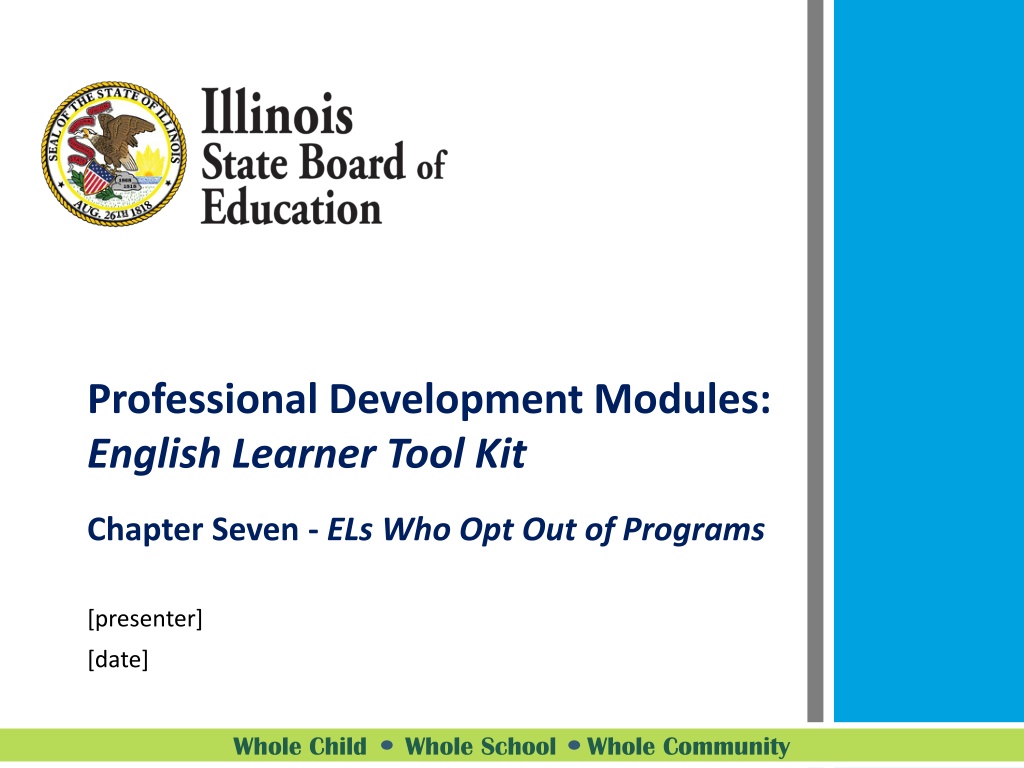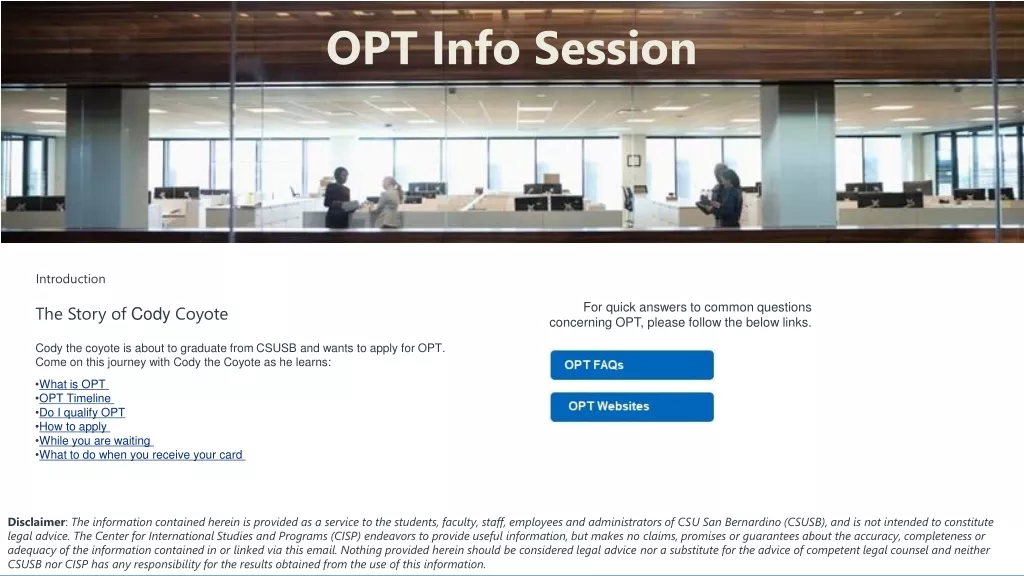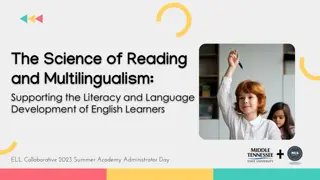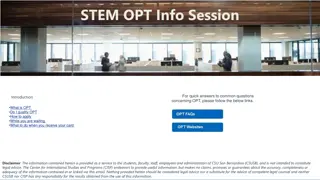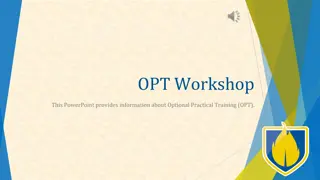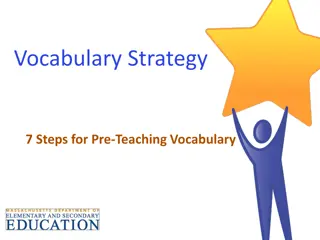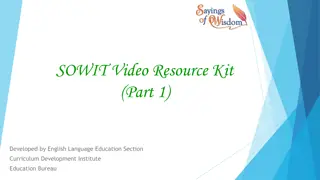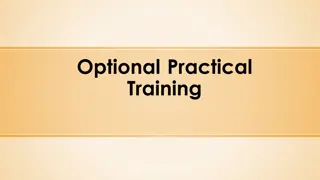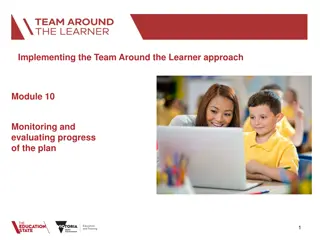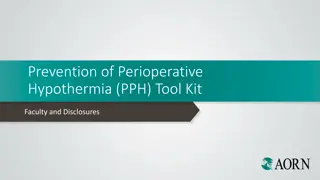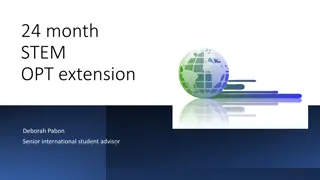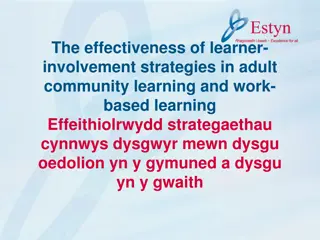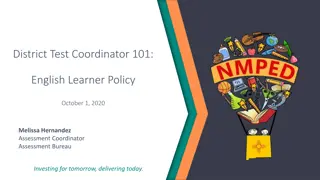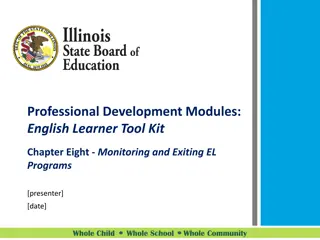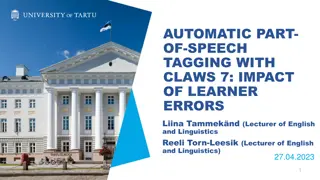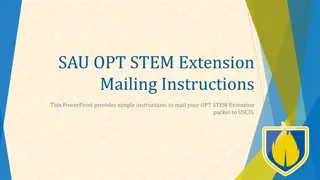Professional Development Modules: English Learner Tool Kit Chapter Seven - ELs Who Opt Out of Programs
This chapter of the Professional Development Modules aims to assist educational leaders in meeting legal obligations towards English learners (EL) and improving practices to support EL students, parents, and families effectively. It covers topics such as identifying ELs, language assistance programs, staffing, meaningful access, inclusive environments, ELs with disabilities, and more. Legal history regarding Title VI of the Civil Rights Act of 1964 and significant court cases are also highlighted.
Download Presentation

Please find below an Image/Link to download the presentation.
The content on the website is provided AS IS for your information and personal use only. It may not be sold, licensed, or shared on other websites without obtaining consent from the author. Download presentation by click this link. If you encounter any issues during the download, it is possible that the publisher has removed the file from their server.
E N D
Presentation Transcript
Professional Development Modules: English Learner Tool Kit Chapter Seven - ELs Who Opt Out of Programs [presenter] [date] Whole Child Whole School Whole Community
Purpose The Professional Development Modules: English Learner Tool Kitis a series of presentations intended to provide guidance to help local educational leaders meet their legal obligations to English learners (EL) and enhance existing EL practices to meet the needs of all EL students, parents, and families. Whole Child Whole School Whole Community Whole Child Whole School Whole Community
English Learner Tool Kit Topics 1. Identifying All ELs 2. Language Assistance Programs 3. Staffing and Supports 4. Meaningful Access 5. Inclusive Environment 6. ELs with Disabilities 7. ELs Who Opt Out of Programs 8. Monitoring and Exiting EL Programs 9. Evaluation of EL Programs 10.Communication with EL Parents Whole Child Whole School Whole Community Whole Child Whole School Whole Community
Significant Legal History Title VI of the Civil Rights Act, 1964 Prohibits discrimination on the grounds of race, color, or national origin by recipients of federal financial assistance. The Title VI regulatory requirements have been legally interpreted to prohibit denial of equal access to education because of a language minority student's limited proficiency in English. Whole Child Whole School Whole Community Whole Child Whole School Whole Community
Significant Legal History Lau v. Nichols Court Case, 1974 Case dealt with San Francisco school system s failure to provide English language instruction to 1,800 students of Chinese ancestry. U.S. Supreme Court unanimously ruled that a lack of supplemental instruction for English learners denies them a meaningful opportunity to participate in educational programs, which violates the Civil Rights Act of 1964. Whole Child Whole School Whole Community Whole Child Whole School Whole Community
Significant Legal History Equal Educational Opportunities Act (EEOA), 1974 Prohibits states from denying equal educational opportunity to an individual on account of his or her race, color, sex, or national origin. The statute specifically prohibits states from denying equal educational opportunity by the failure of an educational agency to take appropriate action to overcome language barriers that impede equal participation by its students in its instructional programs. Whole Child Whole School Whole Community Whole Child Whole School Whole Community
There is no equality of treatment merely by providing students with the same facilities, textbooks, teachers, and curriculum; for students who do not understand English are effectively foreclosed from any meaningful education. Justice William Douglas
Legal Obligations U.S. Department of Education s Office of Civil Rights (OCR) and the U.S. Department of Justice (DOJ) share enforcement authority. Issued joint guidance in 2015 to help states, districts, and schools meet legal obligations to ELs. Guidance identifies 10 common civil rights issues for English learners. Whole Child Whole School Whole Community Whole Child Whole School Whole Community
Serving English Learners Who Opt Out of EL Programs Whole Child Whole School Whole Community Whole Child Whole School Whole Community
ENGLISH LEARNER TOOLKIT Chapter 7: Tools and Resources for Serving English Learners who Opt Out of EL Programs KEY POINTS Parents have the right to opt their children out of EL programs or particular EL services. This decision must be voluntary and based on a full understanding of the EL child s rights, the range of services available to the child, and the benefits of such services to the child. If a parent decides to opt his or her child out of EL programs or particular EL services, that child still retains his or her status as an EL. LEAs must continue to monitor the English language proficiency (ELP) and academic progress of students who opt out of EL programs and services. If a student does not demonstrate appropriate growth in ELP or maintain appropriate academic levels, the LEA must inform the parents in a language they understand and offer EL services. 10 Whole Child Whole School Whole Community Whole Child Whole School Whole Community
11 ENGLISH LEARNER TOOLKIT Chapter 7: Tools and Resources for Serving English Learners who Opt Out of EL Programs KEY POINTS Parents have the right to opt their children out of EL programs or particular EL services. This decision must be voluntary and based on a full understanding of the EL child s rights, the range of services available, and the benefits of such services. If a parent decides to opt his or her child out of EL programs or services, that child still retains his or her status as an EL. Whole Child Whole School Whole Community Whole Child Whole School Whole Community
12 ENGLISH LEARNER TOOLKIT Chapter 7: Tools and Resources for Serving English Learners who Opt Out of EL Programs KEY POINTS Local education agencies (LEAs) must continue to monitor the English language proficiency (ELP) and academic progress of students who opt out of EL services. If a student does not demonstrate appropriate academic or ELP growth, the LEA must inform the parents in a language they understand and offer EL services. Whole Child Whole School Whole Community Whole Child Whole School Whole Community
Pause and Reflect What is our mechanism for documenting which students opt out of services, including tracking communications with families in a language that they understand? What is our process to explore the cause of high opt-out rates for EL services (where applicable)? Are we making sure that ELs who have opted out still assessed for English language proficiency annually? Whole Child Whole School Whole Community Whole Child Whole School Whole Community
Illinois Requirements Whole Child Whole School Whole Community Whole Child Whole School Whole Community
15 Opting Out of EL Programs NOTICE OF ENROLLMENT: Parents need to be notified of their student s placement in EL services within 30 days, if enrollment happens at the beginning of the school year (14 days, if enrollment happens in the middle of the year). After the notification, a parent may request that the student be removed from EL services. Whole Child Whole School Whole Community Whole Child Whole School Whole Community
16 English Language Proficiency (ELP) Assessment is required for all ELs Students who are not enrolled in an EL program, but who have been identified as English learners, are required to participate in the ELP assessment each year until they achieve proficiency. Whole Child Whole School Whole Community Whole Child Whole School Whole Community
Pause and Reflect How do we inform families about their children s status and the right to opt out? What procedures do we have in place to address families concerns about services and program quality? What is our process for families to revisit their opt-out decision? Whole Child Whole School Whole Community Whole Child Whole School Whole Community
18 ADDITIONAL RESOURCES TO CONSIDER FROM THE EL TOOLKIT Whole Child Whole School Whole Community
Tools for Supporting an English Learner Program Tool #1 Statutorily Required Elements of Parent Notification Letter Cites relevant Title I requirements for notifying parents of their children s EL status and their right to opt their children out of EL programs or particular EL services. Whole Child Whole School Whole Community Whole Child Whole School Whole Community
Tools for Supporting an English Learner Program Tool #2 Sample English Learner Programs and Services Opt-Out Notification Provides one example of a form that districts could use to provide documentation for legal compliance when a parent has expressed the desire to opt his or her child out of EL programs or particular EL services. Whole Child Whole School Whole Community Whole Child Whole School Whole Community
Tools for Supporting an English Learner Program Tool #3 Sample Notification to Opt a Child Back into English Learner Programs or Services Provides one example of a form that school districts could use to provide documentation when a parent revisits his or her decision and decides to opt the child back into EL programs or particular EL services. Whole Child Whole School Whole Community Whole Child Whole School Whole Community
22 Resources English Learner Toolkit (see Chapter 7 on Tracking progress of English Learners): http://www2.ed.gov/about/offices/list/oela/english-learner-toolkit/index.html Dear Colleague Letter: Guidance to ensure equal opportunities for English Learners: https://www.justice.gov/crt/guidance-ensure-equal-opportunities-english-learner- students IL School Code 14C: Transitional Bilingual Programs: http://ilga.gov/legislation/ilcs/ilcs4.asp?DocName=010500050HArt%2E+14C&ActID=100 5&ChapterID=17&SeqStart=119100000&SeqEnd=120600000 IL Administrative Code 228: Transitional Bilingual Education: https://www.isbe.net/Documents/228ARK.pdf ISBE Notification of Enrollment in an EL Program: https://www.isbe.net/Pages/Parent-Notification-of-Enrollment-Requirements.aspx Whole Child Whole School Whole Community Whole Child Whole School Whole Community
23 Further Reading Bell, T. & Zantal-Wiener, K. (2015). Sample notification to opt a child back into English learner programs or services. Silver Spring, MD: National Clearinghouse for English Language Acquisition (NCELA). U.S. Department of Education, Office for Civil Rights (OCR), and U.S. Department of Justice (DOJ). (2015, January). Dear colleague letter: English learner students and limited English proficient parents. Zantal-Wiener, K., & Bell, T. (2015). Sample English learner programs and services opt-out notification. Silver Spring, MD: National Clearinghouse for English Language Acquisition (NCELA). Whole Child Whole School Whole Community Whole Child Whole School Whole Community
